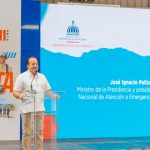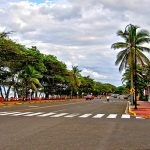Political analyst Freddy Ángel Castro urges Dominican leaders to rebuild voter trust

Santo Domingo.- Political analyst and electoral expert Freddy Ángel Castro has issued a strong appeal to the political leadership in the Dominican Republic, urging them to honor their commitments to the electorate and restore public confidence in the party system.
In a recent interview on the program D’Agenda, broadcast by Telesistema and TV Quisqueya, Castro discussed the implications of a Constitutional Court ruling that now allows independent candidacies. He linked the growing number of non-traditional candidates to widespread dissatisfaction with the established political class.
“Parties cannot expect to maintain voter trust if they continue to break promises and engage in discredited practices, such as the defection of 40 opposition mayors to the ruling party,” Castro warned.
Highlighting that public dissatisfaction with democracy stands at a concerning 34%, Castro stressed the urgency for political parties to adopt more transparent and committed practices. He cautioned against the rise of “outsiders” who could destabilize the political system, drawing parallels to leaders like Nayib Bukele in El Salvador and Javier Milei in Argentina.
Another factor for political leaders to consider is the case of Ramfis Trujillo, who has secured fourth place in the last two electoral contests by championing neo-Trujillism. His supporters identify with the legacy of his grandfather, the dictator Rafael Leónidas Trujillo Molina, indicating a segment of voters aligned with his ideology.
Regulatory challenges for independent candidacies
Castro also addressed the challenges posed by independent candidacies, emphasizing the need for the Central Electoral Board (JCE) to establish clear regulations to ensure transparency in campaign financing. He warned that without proper oversight, the independent route could become a backdoor for individuals involved in illicit activities to gain power.
“Public financing should not be accessible to candidates unaffiliated with political parties or movements. Independent candidates should rely on private funding, but with stringent controls to prevent abuse and corruption,” Castro explained. He also called for the Electoral Regime Law to be reformed to empower the JCE to nullify candidacies that exceed campaign spending limits.
The role of political parties in 2025
Analyzing the state of major political parties, Castro noted significant internal progress within the Dominican Liberation Party (PLD). In contrast, the Modern Revolutionary Party (PRM) faces the challenge of balancing presidential campaign activities with governing responsibilities. He observed that the People’s Force appears lagging in internal renewal, though Leonel Fernández’s leadership remains strong.
Castro concluded with a clear message: “The political class must focus on rebuilding credibility and addressing the genuine needs of the population. Keeping promises is essential to restoring trust in the country’s democratic system.”
He also suggested that to prevent an overabundance of independent candidates in future elections, starting from 2028, the JCE should implement regulations that establish conditions for candidacy without infringing on fundamental rights. This includes ensuring that public financing is reserved for candidates from registered parties, while independents should seek private funding under strict regulatory oversight.

















The leaders can build voter trust if they show they are eliminating institutional corruption.